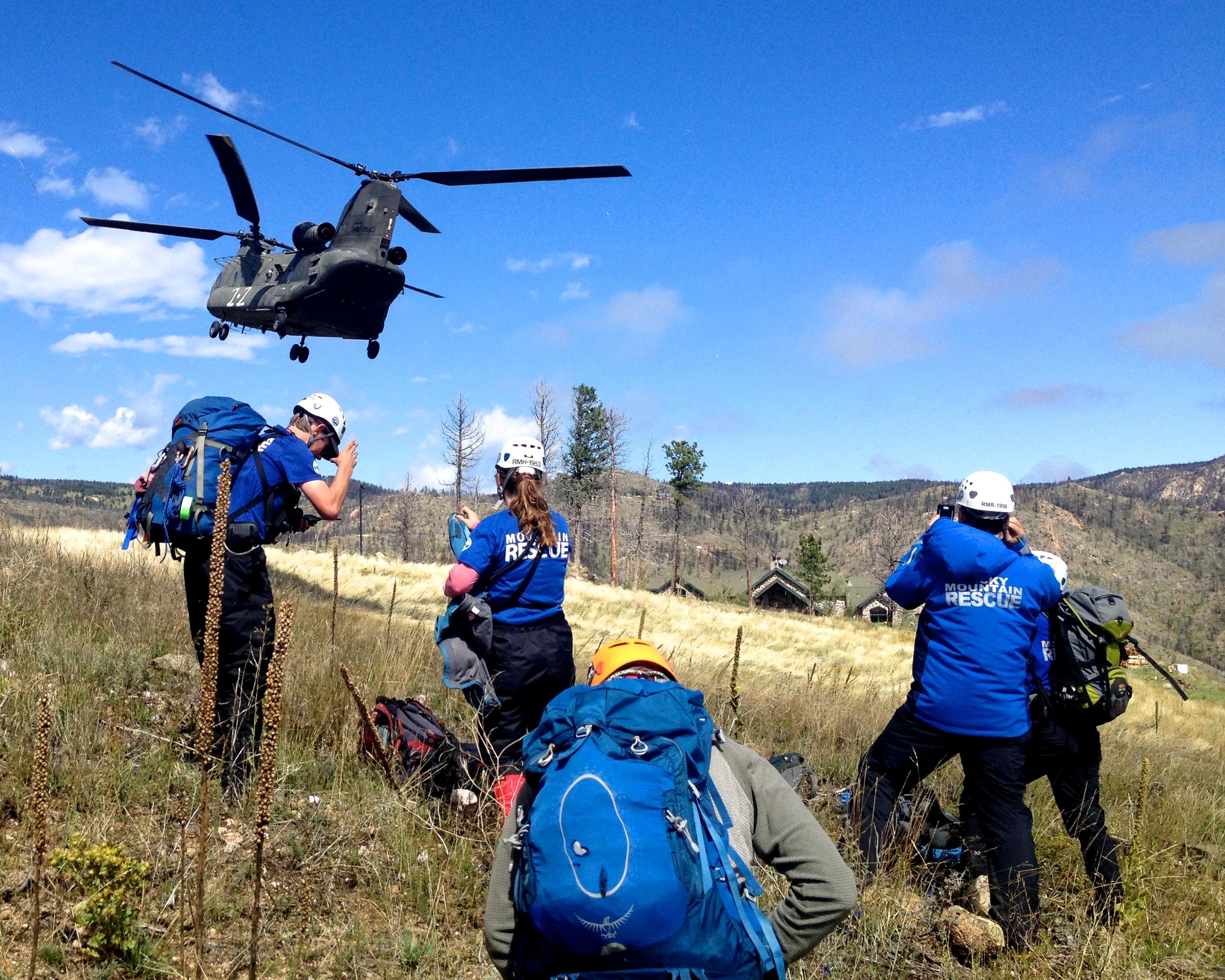
Since the 1940s, backcountry search and rescue groups have helped retrieve injured hikers and climbers in peril from remote mountain areas.
As more people are drawn to the outdoors, the strain on Colorado's all-volunteer groups appears to be growing.
“We’re kind of the safety net for the outdoor industry,” said Jeff Sparhawk, President of Colorado Search and Rescue Organization. “Our teams are getting older, our call loads are going up and we’re trying to make sure that we have a sustainable system across the state.”
There are an estimated 50 rescue teams and 2,800 volunteers that respond to incidents and rescue calls statewide — but there's a need for cataloged information of their exploits. How complicated are the rescues? Do calls come from out-of-state visitors or in-state residents? Is there a common day or time involved?
State Sen. Kerry Donovan believes these teams are critical to outdoor recreation which is why she’s sponsored a new bill (SB20-130) to study the stresses and strains of backcountry rescue.
“It can be 10 below [zero], it can be the middle of the night, and they start to be the people that go in and help people in emergency situations out in the woods,” Donovan said.
Without a backcountry search and rescue group, climber Chris Klinga could be dead. On April 27, 2008, he and his climbing partner ascended the Redgarden Wall in Eldorado Canyon outside Boulder. When his partner grabbed a rock above, a 300-pound coffee table-sized boulder tumbled down and pinned him on a ledge.
Klinga’s pelvis was broken, so were his legs in multiple places. He was stranded with no way to escape. He remembers that it “took 4.5 hours to get me to the hospital.”

The team that led the response, Rocky Mountain Rescue Group, used “every trick in the book, every rescue system that we have,” to get Klinga to safety said Andrew Hildner, a volunteer medic with the group.
The total price tag of the elaborate rescue was $0. A sharp contrast to the $1.2 million in medical bills Klinga racked up.
“The fact that there was never a discussion of how I got there, that wasn’t a part of any one of my bills is astounding to me,” Klinga said. “That was the most time-intensive operation I was part of.”
The combined budget of all 50 all-volunteer Colorado teams is $3 million. Some don’t have adequate or up-to-date equipment needed for rescues.
Rocky Mountain Rescue and other similar teams believe free rescue is critical. Additional costs could delay 911 calls which would put volunteers at even greater risk. Sen Donovan noted that a funding fix will eventually be needed.
There are funding streams that search and rescue groups can tap into. Hikers can buy a $3 card that goes into the Colorado Search and Rescue fund. But, it’s not well known.
“If we are, as a state, going to encourage people to come and play we also need to support the people that are going to help people come and play safely,” Donovan said.
Her bill's secondary goal is to offer groups training on the psychological stresses of backcountry rescue. The idea is to offer tips to manage the stressful life-and-death situations volunteers face.
Chris Klinga continues to rock climb outdoors, but he now has an American Alpine Club membership which offers rescue benefits.
“I’m so thankful for what happened,” he said. “Teams provide rescues in dangerous environments... our state is being overwhelmed with visitors that are coming here for the outdoors. It’s super important that we support this network of volunteers. The more people, the more accidents. That’s the bottom line.”









